The evening before Donald Trump defeated Kamala Harris and recaptured the White House, a member of the United Steelworkers union representing the unaffiliated grassroots organization Steelworkers for Trump was granted a private, five-minute meeting with the former president before he walked on stage to headline a final campaign rally in Pittsburgh.
Jason Zugai lobbied Trump to support Nippon Steel’s pending acquisition of U.S. Steel, explaining the purchase by the Japanese firm would save thousands of union jobs in western Pennsylvania. The Republican nominee, although sympathetic, responded that he did not like the idea of a “foreign country” owning an American steel manufacturer. But Trump agreed to resume discussions with Zugai and his labor colleagues after the election. Satisfied with the soon-to-be president-elect’s openness on the issue, Zugai made one more request.
“Could you please not say you’re going to kill this deal in front of the thousands of steelworkers that I brought [to the Pittsburgh rally]?” he asked. Trump agreed, Zugai told The Dispatch, recalling his conversation with Trump. “He went out and spoke for a couple of hours, did not say he was going to kill the deal.” Zugai hoped their brief meeting might eventually lead to Trump embracing Nippon’s proposed $14.9 billion takeover of financially strapped U.S. Steel.
Those aspirations appeared dashed this month when the president-elect announced his emphatic opposition, saying in a social media post: “I am totally against the once great and powerful U.S. Steel being bought by a foreign company, in this case Nippon Steel of Japan … I will block this deal from happening. Buyer Beware.”
But Zugai hasn’t given up. As of this week, he is seeking a second one-on-one meeting with Trump. If he gets it, such a meeting would exemplify how the first Trump administration operated, and how the second term is likely to function as well: Trump at the center of important decisions instead of passing them off to deputies or formal processes.
Mick Mulvaney, who served in Trump’s first White House as budget director and acting chief of staff, experienced this firsthand. Trump is immovable on some deeply held positions, like his belief in strong border security and the economic benefits of tariffs. But the president-elect tends to talk to a wide range of people and be more personally involved in decisions made by his White House than President Joe Biden and his other predecessors, creating opportunities for personal engagement that might prompt him to consider changing course on some issues.
“There are a few things that Trump is just dead-set on,” Mulvaney told The Dispatch. “There are other things, however, where he would absolutely be open to a reasoned discussion.” Mulvaney pointed to Trump’s first term and his initial intention to impose tariffs on steel imported from Australia, only to change his mind after concluding they were unnecessary. Among the reasons: The U.S. had a trade surplus with Canberra and Australia is an ally working with Washington to counter China.
More recently, Trump has been convinced to drop his opposition to TikTok and cryptocurrency.
The battle over Nippon’s attempt to purchase U.S. Steel and gain a foothold in the domestic steel manufacturing market has been raging for nearly a year. Opposing it are Biden, Harris, Trump, and the national leadership of the United Steelworkers union—a motley political crew if ever there was one. Supporting Nippon’s acquisition are those most affected by the prospect of plant closures in Pennsylvania: the rank-and-file union steelworkers (many of whom backed Trump over Harris), local Mon Valley political leaders, and Pennsylvania Gov. Josh Shapiro, a Democrat up for reelection in 2026.
Procedurally, the fate of the acquisition is in the hands of the Committee on Foreign Investment in the United States (CIFIUS.) The interagency federal panel is chaired by the Treasury secretary (at the moment, Janet Yellen) and includes officials from other key U.S. government agencies. The committee’s primary responsibility is to determine if the potential foreign takeover of an American company would endanger national security, and if so, block the sale. The CIFIUS review of the Nippon-U.S. Steel deal is expected before month’s end.
But the lobbying effort to convince both Biden and Trump to change their mind has accelerated because some of the lobbyists, union members, and political operatives involved in the fight expect CIFIUS to make a recommendation but reserve the final decision for the president. And whether or not Biden proves inflexible, Trump takes office in less than six weeks with the authority to reverse whatever choice his predecessor will have made.
The White House did not respond to a request for comment. But if Biden’s objection to the sale holds, supporters believe Trump can be swayed with enough personal engagement.
“We think this deal is very aligned with the policy priorities of the incoming administration, which is bringing in a ton of investment into a strategic U.S. industry that needs it,” said an individual familiar with lobbying efforts by Nippon Steel and rank-and-file union members in western Pennsylvania. This person, who requested anonymity to speak candidly, added that “tariffs are not going to be enough for U.S. Steel to compete in the global marketplace going forward.” (The Trump transition team did not respond to a request for comment.)
The material U.S. Steel fabricates is a critical component of agricultural and construction equipment, energy pipelines, and industrial machinery. Steel generally is crucial to the manufacture and maintenance of military vehicles and other hardware. So, lawmakers worrying about the takeover of a major American corporation in such a key manufacturing sector is not unexpected. But Nippon Steel believes its case for obtaining ownership of U.S. Steel is compelling.
Japan is a close ally of the U.S. in the Asia Pacific region, hosting major American military bases and forming the bulwark of Washington’s effort to contain a rising China—a priority Tokyo shares. That’s among Nippon’s main arguments against claims that its purchase of U.S. Steel would undermine national security.
On the homefront, rank-and-file union members who work in U.S. Steel’s Mon Valley plants say the Nippon acquisition is the only outcome that will save their jobs. That’s because U.S. Steel is planning to close up shop and move its headquarters to Arkansas, where it has more modern facilities and an abundant non-union (i.e. less expensive) workforce, if the deal falls through. Nippon is pledging to keep the firm’s headquarters in Pittsburgh and invest roughly $3 billion to upgrade outdated blast-furnace plants in the Mon Valley and Gary, Indiana.
Without Japanese investment, Steel City and its surrounding environs could soon be bereft of any steel manufacturing firms or the corporate offices of firms that do such work, proponents of the deal argue. Given what such a development would mean for union jobs, opposition to Nippon’s proposed purchase from United Steelworkers and its president, David McCall, has been perplexing for its supporters. Aside from Biden and Trump, McCall has been the leading public face of the opposition.
In response to questions about McCall’s objections, a spokesman directed The Dispatch to a November 26 letter McCall co-wrote to rank-and-file members outlining the organization’s several points of contention with the deal, and with Nippon. In particular, McCall is pushing for U.S. Steel to be purchased by Cleveland-Cliffs, a domestic manufacturer headquartered in Cleveland whose lower bid was previously rejected.
Nippon Steel declined through a U.S. spokesman to comment for this story.
But in a letter issued to U.S. Steel employees this week, Nippon Representative Director and Vice Chairman Takahiro Mori made clear the firm is not giving up on the acquisition. Notably, the letter referred to conversations with Shapiro as “constructive” while not mentioning Trump or Biden at all. And Shapiro does indeed seem to be a key player in the effort to change Biden’s mind.
“While the final decision on this proposed deal will ultimately be made by the White House alone, the Governor will continue to be actively engaged in this process, working to bring the best offers to the table and strongly advocating for the interests of Western Pennsylvania and the workers of the region to ensure the future of American steelmaking runs through Pennsylvania,” the governor’s spokesman, Manuel Bonder, told The Dispatch in a prepared statement.
Meanwhile, Mori’s letter also focused on the headwinds fanned by United Steelworkers.
“We had hoped that continued discussions with USW leadership would result in their support for the transaction,” Mori wrote. “Our goal has been to listen to their concerns and build on our commitments to spend $2.7 billion in capital investments at unionized facilities, share our world-class technological innovations, and secure union jobs so that American steelworkers at U.S. Steel can manufacture the most advanced steel products in the United States for American customers.”
In painting McCall as the main obstacle to closing the deal and declining to pin any of the blame for its potential failure on Trump, Nippon is preserving the potential to negotiate with Trump down the road. As the incoming 47th president demonstrated during his first term, critics who go public with their grievances often get punished and come up empty handed, while those who push back privately are granted a hearing, and possibly, an agreement.
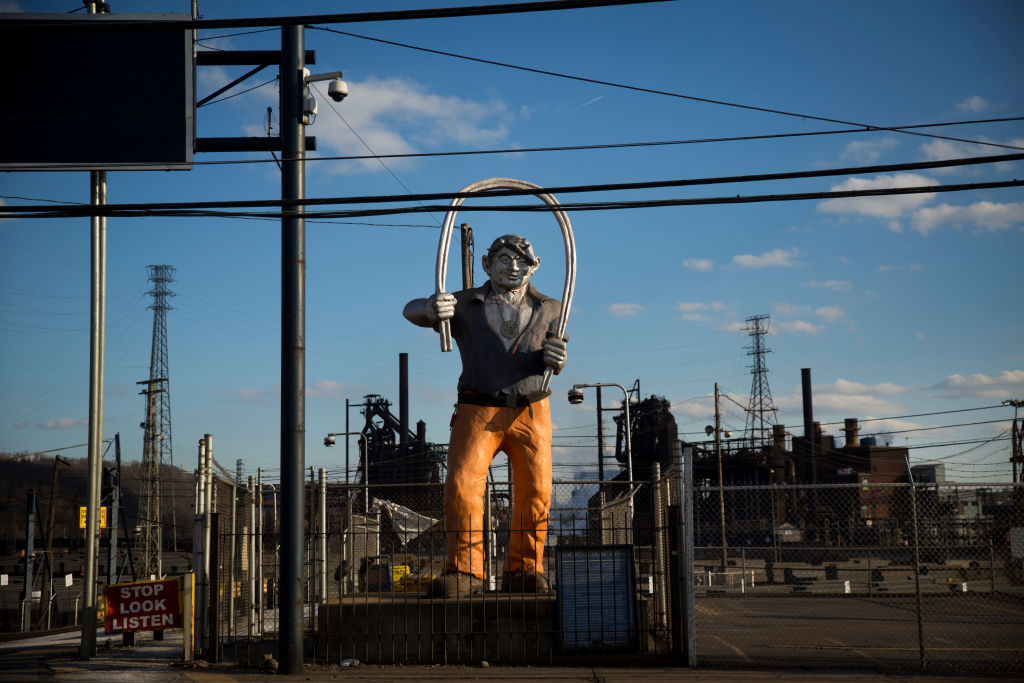

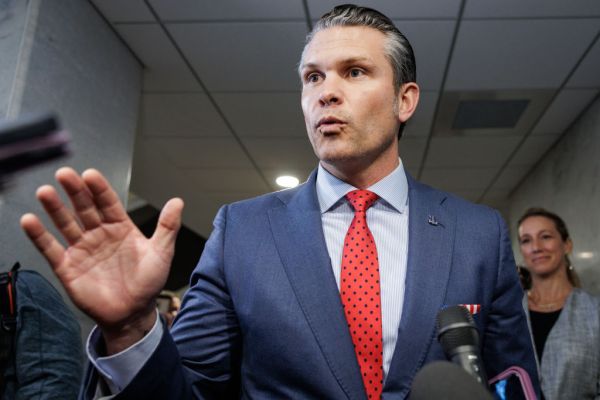

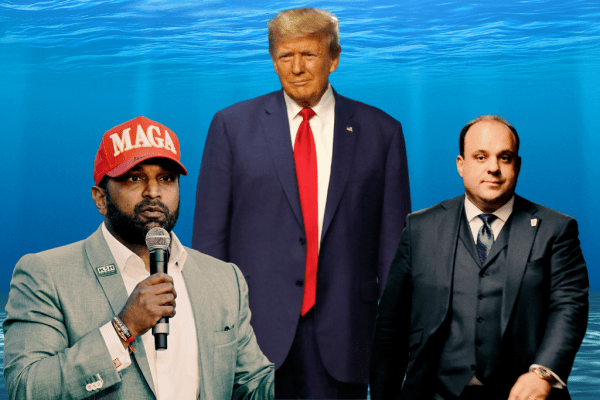
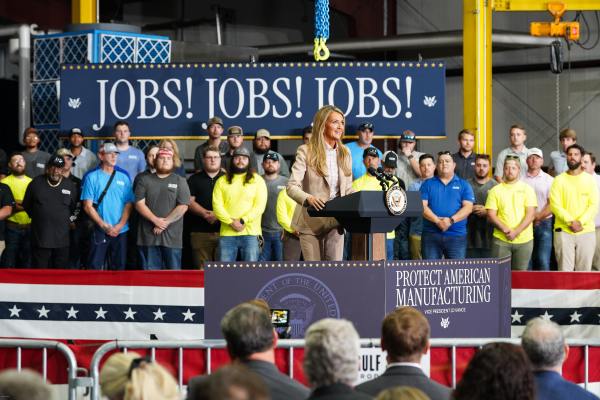
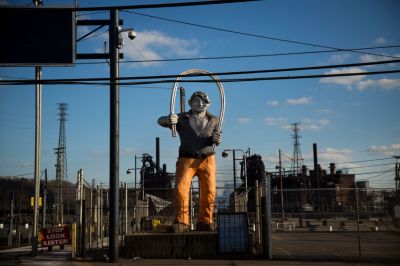
Please note that we at The Dispatch hold ourselves, our work, and our commenters to a higher standard than other places on the internet. We welcome comments that foster genuine debate or discussion—including comments critical of us or our work—but responses that include ad hominem attacks on fellow Dispatch members or are intended to stoke fear and anger may be moderated.
With your membership, you only have the ability to comment on The Morning Dispatch articles. Consider upgrading to join the conversation everywhere.